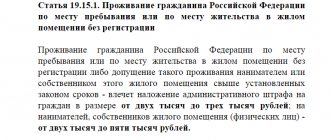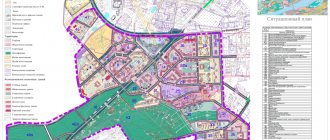How to check out of an apartment to nowhere at your own request Belarus
The provision for a fine is enshrined in law, and therefore it will have to be paid not only in the event of a long absence of registration, but also for delaying the seven-day period allotted for new registration. If a person stays at a new temporary place of residence for more than three months, then he is also required to register.
In Russia, any socialized person is required to have a stamp in his passport with registration at a specific address (what was previously called propiska). If you are leaving your apartment or private house, you must register at your new place of residence within ten working days.
Is it possible and how to check out of an apartment to nowhere of your own free will?
When turning to court on this issue, it is necessary to have a written agreement from the responsible person of the guardianship authorities. Such consent is given by authorities very rarely. For example, it is impossible to re-register a child in a house whose area is smaller than the area of the previous one. This will be interpreted as a violation of human rights.
- Obtaining consent from the passport office to deregister by another person upon presentation of a power of attorney.
- Certification from a notary, written on the form provided by him, of a personal statement of the desire to leave the occupied space.
- Drawing up and subsequent certification of a power of attorney for a third party who will participate in the deregistration process. A photocopy of his passport will be required.
- If the principal lives in another city, the required documents - a passport, a completed application and a power of attorney in his name - are sent to him by a valuable letter.
- After submitting the documents as intended, all that remains is to wait for a response. The completed documents are also sent to the applicant by valuable letter.
Legal advice, legal assistance from a lawyer, legal services, representation in court
I live in the city of Molodechno. in a private house the owner of which is my grandmother. My children and I were registered with her, can she sign me out with 2 children, children 3.5 years old and 1.5 years old, without my consent? or sell the house? and also my husband, but he has annual registration in this house (he is a citizen of the Russian Federation), can she discharge him without my consent??
HOUSING CODE OF THE REPUBLIC OF BELARUS March 22, 1999 N 248-Z Article 39. Eviction without providing citizens with residential premises If the tenant, members of his family or other persons living with him systematically destroy or damage the residential premises, or use it for other purposes, or systematic violation of the rules for the use of residential premises makes it impossible for others to live with them in the same apartment or in the same house, and measures of prevention and social influence were ineffective; the eviction of the perpetrators, at the request of the landlord or other interested parties, is carried out in court without the provision of another residential premises. Citizens subject to eviction without the provision of other residential premises, at the request of the landlord, may be obliged by the court to exchange the occupied residential premises for another residential premises in return for eviction. Article 116. Rights and obligations of family members of the owner of a residential premises living together with him Family members of the owner of a residential premises have the right to use the residential premises on an equal basis with the owner of this premises, if there was no other written agreement when they moved in. Family members of the owner of residential premises have the right, without the consent of the owner, to move their minor children into residential premises provided to them for use. Moving in other citizens by family members is permitted only with the consent of the owner of the residential premises. The rights and obligations of family members of the owner of a residential premises can be changed by the owner and members of his family only with their (his) consent in writing. The owner of a residential premises and adult members of his family are jointly and severally liable for obligations related to the use and maintenance of the residential premises, auxiliary premises of the residential building and the surrounding area. If family members of the owner of a residential premises have ceased to be members of his family, but continue to live in this residential premises, they retain their rights and obligations, unless otherwise established by this Code and a written agreement concluded with him on the procedure for using the residential premises. Article 120. Eviction of family members of the owner of residential premises Family members of the owner of residential premises who do not have the right of ownership to a share in the residential premises may be evicted from the residential premises in court without the provision of another residential premises on the grounds provided for in Article 39 of this Code, or on on the basis of a written agreement upon move-in that does not contradict the legislation of the Republic of Belarus. If adult members of the owner’s family living together with him have another residential premises in a given locality that belongs to them by right of ownership, then at the request of the owner they are subject to eviction to this residential premises. Adult family members of the owner living together with him may be evicted at the request of the owner to another residential premises purchased by him at his own expense. Family members of the owner of a privatized residential premises living together with him, but who did not take part in the privatization, are not subject to eviction from the residential premises on the grounds provided for in this article.
We recommend reading: Regional coefficient Yekaterinburg 2019
How to check out of an apartment to nowhere of your own free will
The application form issued implies a column for the new place of registration, but in reality no one checks whether the person really lives there after being discharged to the old address. That is why you can indicate almost any address in this column and this will not cause any problems.
At the same time, it is not stipulated that if a citizen is simply discharged without subsequent registration, then he is obliged to immediately look for a place of new residence. When applying for an extract, you will need to write an application that contains a line indicating the place where the citizen is traveling.
My address is not a house or a street - or is it possible to check out of the apartment - to nowhere
- If the owner registers, then such a document is a certificate confirming his ownership of the property.
- When registering family members, you should prepare a statement from the owner in which he asks to register a relative.
- The tenant must have a tenancy agreement with him.
This is interesting: How to check whether I owe housing and communal services if I am in another city
A document replacing a passport during his absence is not provided.
- Upon completion of the extract, the person receives a passport with a stamp on the extract registration page . He will also be provided with a departure sheet, which he will need to register at his new address.
Check out from the apartment
According to Article 95 of the Housing Code of the Republic of Belarus
adult members, former family members of the owner of the residential premises, other citizens who have the right to own and use the residential premises, who live together with him and do not have a share in the right of common ownership of the residential premises, may be evicted from this residential premises at the request of its owner on grounds , provided for in paragraph four of paragraph 1 of Article 85 of this Housing Code of the Republic of Belarus, without the provision of other residential premises.
- members, former family members of the owner, tenant, subtenant of residential premises, a citizen who is a member of a developer organization, who have entered into a written agreement on the procedure for using residential premises, in accordance with the terms of which they are subject to eviction without the provision of other residential premises;
How to check out of an apartment to nowhere of your own free will
When contacting the MFC, the documents are handed over to the employee personally, however, the period for issuing an extract increases by several days. An important point is that the deregistration stamp can only be affixed at the passport office, so you will still have to contact this institution.
If a person does not want to move out of his own free will, he will have to go to court and prove why the defendant did not please the plaintiff. For example, he leads an antisocial lifestyle and poses a threat to the lives of other residents. In this case, the court will make a decision obliging the municipality to terminate the contract with the defendant.
How to discharge a deceased person from non-privatized housing
If for some reason the apartment in which the deceased lived was not privatized and in fact belongs to the state, you must also contact the passport office to deregister the deceased. You must have with you:
- a signed application addressed to the head of the passport office;
- death certificate;
- documents certifying the applicant’s relationship with the deceased;
- passport;
- social rental agreement.
The main condition for deregistration of the deceased is the re-conclusion of the contract with a new tenant.
By analogy with the situation described above, when renting a share of social housing, it is necessary to provide a certificate of family composition. If a relative is the sole tenant of the apartment, he must provide notarized documents confirming the right of inheritance. Consideration of the application and discharge of the deceased is also carried out within three working days.
Check out of an apartment without a new place of registration
This is interesting: How much does the pension increase after 80 years in 2020
Deregistration of a tenant, often a relative, without further registration, which is quite common when selling an apartment, is in fact carried out depending on the ownership rights. For example, returning again to municipal real estate, you can deregister a person who has a debt for utilities, but, unlike privatized housing, judicial collection of the debt will be carried out before deregistration. At the same time, the local administration with which the social rental agreement has been signed must be notified of the upcoming discharge.
CHAPTER 13. EVICTION OF CITIZENS FROM RESIDENTIAL PREMISES
CHAPTER 13 EVICTION OF CITIZENS FROM RESIDENTIAL PREMISES
Article 84. General provisions on the eviction of citizens from residential premises 1. Eviction of citizens from residential premises is permitted only on the grounds provided for by this Code and other legislative acts. 2. Citizens evicted from residential premises are simultaneously provided with other residential premises, except for the cases provided for by this Code and other legislative acts. 3. The residential premises provided to citizens in connection with their eviction must be located within the given locality, and in rural areas - within the territory of the village council, with the exception of evictions in the event of natural and man-made emergencies, military operations and acts of terrorism, as well as cases provided for in paragraph 1 of Article 86, paragraph 2 of Article 89, paragraph 2 of Article 94 and Article 155 of this Code. Residential premises located outside a given locality, and in rural areas - outside the territory of the village council, during eviction can be provided to a citizen only with his consent, with the exception of eviction in the event of natural and man-made emergencies, military operations and acts of terrorism, and also the cases provided for by paragraph 1 of Article 86, paragraph 2 of Article 89, paragraph 2 of Article 94 and Article 155 of this Code. 4. When citizens are evicted in court or administratively by order of the prosecutor, the court decision or the prosecutor's order shall indicate the residential premises provided to the evicted citizens.
Article 85. Eviction of citizens without providing them with residential premises 1. The following are subject to eviction in court without the provision of other residential premises at the request of the owner of the residential premises or other interested parties: citizens who arbitrarily occupied residential premises; a citizen who is granted the right to own and use residential premises as a guardian (trustee), foster parent, parent-teacher of a family-type orphanage, in the event of his refusal to vacate this residential premises upon termination of guardianship (trusteeship); adult members, former family members of the owner of the residential premises, living together with him and not having a share in the right of common ownership of the occupied residential premises, the tenant of the residential premises, members living with him, former members of his family, adult members, former family members of a citizen, who is a member of the developer organization, living together with him, or other residents living together with this owner, tenant of residential premises or a citizen who is a member of the developer organization, citizens who have been brought to administrative responsibility three or more times during the year for violating the rules for the use of residential premises, maintenance of residential and auxiliary premises, expressed in destruction, damage to residential premises or in the use of it for other purposes, or for other violations of the requirements of this Code, making it impossible for others to live with them in the same apartment or in the same residential building, were warned by the owner of the possibility evictions without the provision of other housing and within a year after such a warning were brought to administrative responsibility for similar offenses; members, former family members of the owner, tenant, subtenant of residential premises, a citizen who is a member of a developer organization, who have entered into a written agreement on the procedure for using residential premises, in accordance with the terms of which they are subject to eviction without the provision of other residential premises; tenant (subtenant) of residential premises, members, former members of his family - in the event of termination or termination of the lease (sublease) agreement for residential premises; citizens in other cases provided for by this Code and other legislative acts. 2. On the grounds provided for in paragraph four of paragraph 1 of this article, participants in shared ownership, including adult members, former family members of the owner of the residential premises, upon termination of the right of shared ownership, are evicted in court without the provision of another residential premises if their share is insignificant, cannot be realistically allocated and they do not have a significant interest in the use of the residential premises. Eviction is carried out after the owners pay the evicted former participants in shared ownership for their share in the residential premises of its market value, determined in accordance with the law.
Article 86. Eviction of citizens who evade payment for housing and communal services and fees for the use of residential premises 1. The tenant of a residential premises of the state housing stock and members of his family living with him who, without good reason, have a six-month arrears in payment for housing and communal services services and payment for the use of residential premises, are subject to eviction in court with the provision of another residential premises (except for the case provided for in paragraph four of paragraph 2 of Article 93 of this Code), in terms of the total area of the less occupied residential premises and (or) inferior to it in its consumer qualities, in compliance with the type of previously concluded contract for the rental of residential premises of the state housing stock and the period of its validity (if the contract for the rental of residential premises was concluded for a certain period), including outside a given locality, or may be subject to forced exchange in court residential premises occupied by them for residential premises, in total area less occupied, in which, under a rental agreement for residential premises of the state housing stock, live citizens who are registered as needing improved housing conditions, based on the date of their acceptance for such registration. At the same time, eviction of the tenant of a residential premises of the state housing stock and members of his family living together with him is allowed if the debt for payment for housing and communal services and payment for the use of residential premises is not repaid in full. Eviction of the tenant of a residential premises of the state housing stock and members of his family living together with him is allowed only with the consent of the guardianship and trusteeship authority if minors who are recognized as being in a socially dangerous situation or recognized as needy live in the residential premises of the state housing stock or have the right to reside in state protection, or in residential premises live citizens recognized as incompetent or limited in legal capacity by the court, or this residential premises is assigned to orphans or children left without parental care. 2. If the children of the tenant of the residential premises of the state housing stock are on state support in children's boarding institutions, state institutions of vocational, secondary special or higher education, family-type orphanages, in guardianship, foster families, boarding homes for disabled children with characteristics of psychophysical development, they are assigned residential premises provided to the tenant of the residential premises of the state housing stock and members of his family upon eviction in accordance with paragraph 1 of this article or received by them as a result of a forced exchange. At the same time, orphans and children left without parental care may be registered as those in need of improved housing conditions in the manner established by Chapter 7 of this Code. 3. The eviction of the tenant of the residential premises of the state housing stock and members of his family living together with him is carried out after the termination of the lease agreement for the residential premises of the state housing stock in the manner established by Article 61 of this Code.
Article 87. Eviction of citizens from residential premises pledged to the bank 1. In the event of foreclosure on residential premises pledged to the bank, its sale, the right of ownership and use of this residential premises of citizens (with the exception of citizens who have the right to lifelong use of the pledged residential premises by testamentary refusal) terminates from the moment of state registration of the transfer of ownership of this residential premises. 2. After the termination of the right of ownership of residential premises pledged by the bank, the citizen who has lost the right of ownership of the residential premises and the citizens living together with him are subject to eviction from this residential premises without the provision of another residential premises.
Article 88. Eviction from residential premises in connection with the demolition of a residential building or in connection with the transfer of residential premises to non-residential 1. The tenant of residential premises of the state housing stock and citizens living together with him, if the residential premises occupied by them are in disrepair or threatens to collapse, is subject to demolition, and also if, due to emergencies of a natural and man-made nature, military operations and acts of terrorism, the residential premises no longer meet the sanitary and technical requirements established for living and are recognized as unsuitable for living, by decision of the local executive and administrative body they are subject to eviction from provision of residential premises of standard consumer qualities with a total area not less than that occupied at the expense of the owner of the housing stock, in compliance with the type of the previously concluded rental agreement for residential premises and its validity period (if the rental agreement for residential premises was concluded for a certain period). 2. If the residential building in which the residential premises of the state housing stock is located is subject to demolition in connection with the seizure of a land plot for state needs or the residential premises of the state housing stock are recognized in the manner established by law as not meeting the sanitary and technical requirements established for living and are subject to transfer to non-residential, state organization, which is provided with this land plot or intended for residential premises to be transferred to non-residential, provides evicted citizens with residential premises of standard consumer qualities that meet the requirements of Article 105 of this Code, in compliance with the type of previously concluded rental agreement for residential premises and the period of its validity ( if the residential rental agreement was concluded for a certain period). If a residential building in which the residential premises of the state housing stock is located is subject to demolition in connection with the seizure of a land plot for state needs and this plot is provided to an organization of non-state ownership or it is assigned residential premises to be transferred to non-residential premises, then the evicted citizens are provided with standard residential premises consumer qualities, meeting the requirements of Article 105 of this Code, in compliance with the type of the previously concluded residential rental agreement and its validity period (if the residential rental agreement was concluded for a certain period) by local executive and administrative bodies, other government bodies, other government organizations, in whose economic management or operational management is a residential premises subject to demolition or transfer to non-residential, at the expense of the funds of the specified organization of non-state ownership transferred for these purposes, or the gratuitous transfer of residential premises owned by it to republican or communal ownership. When determining the size of the total area of the provided residential premises of the state housing stock during eviction from residential premises in the cases provided for in parts one and two of this paragraph, subtenants and citizens to whom residential premises are temporarily provided for free possession and use in accordance with Article 69 of this Code are not taken into account , as well as citizens who are granted the right to own and use residential premises after decisions are made to demolish the residential building in which it is located, or to recognize the residential premises as not meeting the sanitary and technical requirements established for living (with the exception of citizens moved in in the prescribed manner, and spouses, minors and adult disabled children, disabled parents of both the employer and members of his family living together in this residential premises). 3. The owner of residential premises and citizens living together with him, if the occupied residential premises, due to emergencies of a natural and man-made nature, military operations and acts of terrorism, no longer meet the sanitary and technical requirements established for living, or if the residential premises are subject to demolition due to with the seizure of a land plot for state needs, are subject to eviction without the provision of another residential premises if the owner of the residential premises chooses monetary compensation for the residential premises owned by him, provided in accordance with paragraph three of paragraph 1 of Article 158 of this Code. If the owner of a residential premises chooses the right to receive ownership of an apartment of standard consumer qualities or a residential building, this owner and the citizens living with him are evicted from the residential premises they occupy into an apartment of standard consumer qualities or a residential building provided to him in ownership in accordance with paragraph two of paragraph 1, paragraph two of part one of paragraph 2 and paragraph 5 of Article 158 of this Code.
Article 89. Eviction from residential premises that are in disrepair or threatening to collapse, as well as in connection with the introduction of martial law or a state of emergency 1. Citizens are subject to administrative eviction by order of the prosecutor from residential premises that are in disrepair or threatening to collapse, in other residential premises provided by local executive and administrative bodies at the expense of the owner of the housing stock. 2. When introducing a state of martial law or a state of emergency, the President of the Republic of Belarus may provide for the temporary eviction of citizens to safe areas with the provision of special residential premises.
Article 90. Eviction from residential premises during major repairs or reconstruction of a residential building 1. When carrying out major repairs or reconstruction of a residential building, if major repairs or reconstruction cannot be carried out without eviction, the owner of the residential premises of a private housing stock, the tenant of the residential premises of a public housing fund and citizens permanently residing with them are provided with residential premises of a maneuverable fund for the period of major repairs or reconstruction of a residential building. In this case, the lease agreement for residential premises of the state housing stock is not terminated. If the owner of a residential premises of a private housing stock, the tenant of a residential premises of a state housing stock, as well as citizens living with them, refuse to evict into a residential premises provided in connection with a major repair or reconstruction of a residential building, they may be evicted for the duration of the major repair or reconstruction of a residential building into provided residential premises in court. 2. Eviction of the owner of a residential premises of a private housing stock, a tenant of a residential premises of a state housing stock and citizens living together with them from the residential premises occupied by them for the period of major repairs or reconstruction of a residential building into another residential premises and granting them the right to own and use the repaired or reconstructed residential premises are made at the expense of the organization to whose account the payment for the major repairs of this residential building was paid.
Article 91. Eviction from a residential premises for social use 1. In the event of the departure of the tenant of a residential premises for social use to another place of residence or his death, the adult members of his family are subject to eviction from the residential premises for social use in court without the provision of another residential premises if they are provided with in this in a populated area with another residential premises with a total area of fifteen square meters or more (in the city of Minsk - ten square meters or more) per person, corresponding to the sanitary and technical requirements established for living. Able-bodied adult family members of the tenant who do not own and use residential premises of the state housing stock on the basis of a rental agreement for residential premises or own another residential premises in a given locality with a total area of fifteen square meters or more (in the city of Minsk - ten square meters or more ) for one person who meets the sanitary and technical requirements established for residence, are subject to eviction from a residential premises for social use in court without the provision of another residential premises upon the expiration of the lease agreement for a residential premises for social use of the state housing stock, concluded with them in accordance with part first paragraph 3 of Article 115 of this Code. 2. Citizens who have taken into a guardianship or foster family three or more orphans and (or) children left without parental care, and in connection with this have received residential premises for social use, are subject to eviction from such residential premises without the provision of another residential placement in the event that the guardianship and trusteeship body makes a decision to release (remove) them from fulfilling the duties of guardians (trustees) in relation to these children, terminate or terminate the agreement on the transfer of the child (children) to be raised in a family or the acquisition of full legal capacity by children taken into care volume. If the citizens specified in part one of this paragraph previously used residential premises of the state housing stock, upon eviction they are provided with this residential premises or other residential premises of the state housing stock equivalent to it, in compliance with the type of the previously concluded rental agreement for residential premises and the period of its validity (if the agreement the rental of residential premises was concluded for a certain period). Orphans and (or) children left without parental care are subject to eviction from residential premises for social use provided to citizens specified in part one of this paragraph, if residential premises are assigned to orphans and (or) children left without parental care premises of state and (or) private housing funds, the tenants or owners of which are their parents, or they own residential premises by right of ownership, with the exception of the case of providing residential premises for social use to a new guardian (trustee), adoptive parent of these children.
Article 92. Eviction from official residential premises of the state housing stock 1. Employees who have terminated their labor (service) relationship with the organization that provided official residential premises of the state housing stock, in case of refusal to vacate the official residential premises, are subject to eviction from it along with all citizens living together with them, in court without providing other living quarters. 2. In the event that the tenant receives (purchases) office residential premises in a given locality of another residential premises with a total area of fifteen square meters or more (in the city of Minsk - ten square meters or more) per person, meeting the sanitary and technical requirements established for living, citizens living in official residential premises are subject to eviction from it in court without the provision of other residential premises, with the exception of the case if one of the adult family members of the tenant of the residential premises living together with him is in an employment (official) relationship with the landlord and due to the nature of his work, he may be provided with office accommodation. If the tenant of the residential premises under a contract for the lease of official residential premises of the state housing stock has died (declared dead, declared missing by the court), members and former members of his family are subject to eviction from the official residential premises in court without the provision of other residential premises if they have they own in a given locality residential premises with a total area of fifteen square meters or more (in the city of Minsk - ten square meters or more) per person, meeting the sanitary and technical requirements established for living, or upon expiration of the rental agreement for office residential premises state housing stock concluded with them in accordance with paragraphs 1 or 2 of Article 118 of this Code. 3. If the tenant of official residential premises leaves for his place of residence in another locality or other residential premises in this locality, members and former members of his family lose the right to own and use the official residential premises and are subject to eviction in court without the provision of other residential premises. The statute of limitations does not apply to demands for eviction of such citizens. Part one of this paragraph applies to members, former family members of the tenant of official residential premises under a contract for the lease of official residential premises of the state housing stock, who moved to their place of residence in another locality or other residential premises in this locality after April 8, 2006. 4. The specifics of eviction from official residential premises of citizens holding elected positions in state bodies, as well as those appointed to positions in state bodies by the President of the Republic of Belarus, are determined by this Code and regulatory legal acts of the President of the Republic of Belarus.
Article 93. Eviction from the residential premises of the state housing stock in the dormitory 1. Employees who have terminated their labor (service) relationship with the organization that provided the residential premises of the state housing stock in the dormitory, in case of refusal to vacate the residential premises in the dormitory, are subject to eviction from it along with all citizens, living together with them, in court without the provision of other living quarters. 2. The tenant and members of his family living with him are subject to eviction from the residential premises of the state housing stock in a dormitory without the provision of other residential premises: those who own and (or) in possession and use in this locality under a lease agreement for residential premises of the state housing stock residential premises with a total area of fifteen square meters or more (in the city of Minsk - ten square meters or more) per person, meeting the sanitary and technical requirements established for living; who are members of a developer organization - after three months after the residential building is put into operation; having, without good reason, a six-month debt in payment for housing and communal services and payment for the use of residential premises. 3. Citizens who studied in educational institutions and left them at the end of the study period or for other reasons are subject to eviction from the residential premises of the state housing stock in the dormitory, which was provided to them in connection with their studies, without the provision of other residential premises. Eviction of pupils and students who are orphans and children left without parental care, as well as persons from among orphans and children left without parental care, from the residential premises of the state housing stock in the dormitory, regardless of the grounds for its provision, is not allowed until providing them, in accordance with the established procedure, with another residential premises at their location, registered as needing improved housing conditions. 4. Citizens who, at the request of another organization, have been granted the right to own and use residential premises of the state housing stock in a dormitory, are subject to eviction from it without the provision of other residential premises upon the expiration of the lease agreement for residential premises of the state housing stock in the dormitory or after termination of employment ) relations (regardless of the grounds for dismissal) with the organization that applied for the provision of residential premises of the state housing stock in a dormitory, as well as without taking into account the provisions of part two of paragraph 3 of this article. The statute of limitations does not apply to demands for eviction of such citizens. 5. When carrying out major repairs or reconstruction of residential premises of the state housing stock in a dormitory, if major repairs or reconstruction cannot be carried out without eviction, citizens living in residential premises of the state housing stock in a dormitory are provided with residential premises for the period of major repairs or reconstruction of the dormitory maneuverable fund or other residential premises in this or another dormitory of at least six square meters of living space per person. In this case, the rental agreement for residential premises of the state housing stock in the dormitory is not terminated. Citizens living in residential premises of the state housing stock in dormitories that are in their separate ownership and use are provided with residential premises of the flexible fund for separate ownership and use. If citizens living in residential premises of the state housing stock in dormitories refuse to be evicted to residential premises provided in connection with the major repairs or reconstruction of the dormitory, they may be evicted during the period of major repairs or reconstruction of the dormitory into the provided residential premises in court. 6. In the event of demolition of a dormitory, recognition of the residential premises of the state housing stock in the dormitory in the manner prescribed by law as not meeting the sanitary and technical requirements established for residence and its transfer to non-residential, as well as in the event that the dormitory is in disrepair or threatens to collapse, the organization , in whose jurisdiction this dormitory is located, provides the citizen living in the dormitory with residential premises in another dormitory, in compliance with the type of the previously concluded rental agreement for residential premises and its validity period (if the rental agreement for residential premises was concluded for a certain period). If the hostel is in a state of disrepair or is in danger of collapse, a citizen may be provided with living quarters in another hostel with less than six square meters of living space per person.
Article 94. Eviction from special residential premises. Eviction of obligated persons 1. Eviction of citizens from special residential premises is carried out in connection with the termination of the grounds on which they were provided with special residential premises, as well as in the event of systematic (three or more times during a calendar year) destruction or damage to special residential premises, or using it for other purposes, or systematically violating the rules for using special residential premises, making it impossible for others to live with them in the same residential premises. Parents and educators are subject to eviction from the provided special residential premises without the provision of other residential premises in the event of termination of the employment contract and the agreement on the conditions for the upbringing and maintenance of children or their removal from raising children, if they have not previously owned and used residential premises of the state housing stock under lease agreement for residential premises of the state housing stock. If the parent-educators previously had in the possession and use of residential premises of the state housing stock, upon their eviction these residential premises are returned to them or equivalent other residential premises of the state housing stock are provided in compliance with the type of the previously concluded rental agreement for residential premises and the period of its validity (if the rental agreement residential premises was concluded for a certain period). 2. Upon claims of local executive and administrative bodies or organizations authorized by them, obligated persons may be evicted in court from the occupied residential premises of state and private housing stock with the provision of other residential premises that are less occupied in total area and (or) inferior to them in their consumer benefits qualities, including outside a given locality, for the period specified in the court decision. In this case, the lease agreement for residential premises of the state housing stock with the obligated person is not terminated.
Article 95. Eviction at the request of the owner of the residential premises of members, former members of his family, other citizens who have the right to own and use the residential premises 1. Adult members, former family members of the owner of the residential premises, other citizens who have the right to own and use the residential premises, residents together with him and not having a share in the right of common ownership of residential premises, may be evicted from this residential premises at the request of its owner on the grounds provided for in paragraph four of paragraph 1 of Article 85 of this Code, without the provision of other residential premises. 2. Former family members of the owner of the residential premises, other citizens who have the right to own and use the residential premises and do not have a share in the right of common ownership of this residential premises, are subject to eviction from it at the request of the owner of the residential premises without the provision of other residential premises, unless otherwise established by a marriage contract or a written agreement on the procedure for using residential premises. 3. Adult family members of the owner of a residential premises, living together with him and not having a share in the right of common ownership of this residential premises, are subject to eviction at the request of the owner to another residential premises belonging to them or the owner by right of ownership in this locality and corresponding to the established sanitary and technical requirements for living. 4. Members, former family members of the owner of a privatized residential premises, who lived together with him at the time of privatization, but did not take part in privatization, as well as members, former family members of the owner of a residential premises, which was built with state support allocated to the owner, as part of the family which included these members, former family members, are not subject to eviction from the residential premises, except for the cases provided for in paragraph four of paragraph 1 of Article 85 of this Code. 5. When carrying out major repairs or reconstruction of residential premises, members, former family members of the owner of the residential premises, other citizens who have the right to own and use the residential premises and live together with him, at the request of the owner of the residential premises for the period of major repairs or reconstruction of this residential premises are subject to eviction to another residential premises that belongs to him by right of ownership in the given locality and meets the sanitary and technical requirements established for living. 6. For eviction, at the request of the owner of the residential premises, to another residential premises of adult members, former members of the owner’s family, other citizens who have the right to own and use the residential premises, living together with him and not having a share in the right of common ownership of this residential premises, with their minors, recognized as being in a socially dangerous situation or recognized as in need of state protection, require the consent of the guardianship and trusteeship authorities.
How to Check Out of an Apartment and Go to Nowhere At Your Own Desire Belarus
An important point is that the deregistration stamp can only be affixed at the passport office, so you will still have to contact this institution. After receiving a mark in the civil passport, the discharge procedure is considered completed, and the citizen receives a special document - a departure sheet, which will be required to obtain a new registration.
Therefore, if you have a warrant, then it is as easy for you to sign out as for those who have a document of ownership. You will still have rights to this residential premises, but will not be officially registered in it. This means that the procedure for regular deregistration is not complicated in any way even if you have a warrant for the apartment. Next we will talk about how to check out of an apartment in the ATO zone.
This is interesting: What is the time frame for filing a claim for non-payment of utilities?
How to discharge a person from an apartment
- Who cannot be forcibly evicted from an apartment
One of the most popular reasons for expelling a person from an apartment is the purchase of their own home and the associated move. However, in such cases, a citizen changing his place of residence does not oppose being discharged from his previous apartment (house). But it is not so rare that there is a need to expel someone from an apartment without consent. In the Republic of Belarus, this issue is regulated by the Housing Code. In accordance with Articles 85 and 95 of the Housing Code of the Republic of Belarus, you can evict in court without the consent of the person being evicted and provide alternative housing:
- Members and former family members of a citizen who owns housing, if they are at least 18 years old and do not have ownership rights to the occupied area. Check-out and eviction occur based on the request of the property owner.
- Persons who own and use a residence as a guardian after guardianship has been terminated for any reason.
- Citizens who were brought to administrative responsibility three times during the year under articles related to the maintenance and use of residential premises. Most often we are talking about the destruction or damage of property, less often - about the use of residential premises for other purposes.
- Citizens living in an apartment (house) on the basis of an agreement, the terms of which stipulate the possibility of eviction without the provision of alternative housing.
- Tenants of housing, as well as their current and former family members, if the rental or sublease agreement has been terminated.
There are no fundamental procedural differences between deregistration from a privatized and non-privatized apartment.
The question often arises of how to expel a husband from an apartment or how to expel a wife. Quite often this problem is the result of pressure from relatives, but in general the reasons can be very different. If both spouses agree with this decision, serious problems are unlikely to arise. If the person who wants to be discharged does not agree with this, then the issue will have to be resolved through the court, and if this citizen falls under at least one of the paragraphs of Articles 85 or 95 of the Housing Code of the Republic of Belarus, then the claim will be satisfied.
After a divorce, the decision to discharge the ex-husband (wife) is a standard situation. If the apartment is not jointly acquired property and there are no legal proceedings on the division of real estate, the procedure is clear and quite simple. In accordance with Article 95 of the Housing Code of the Republic of Belarus, former family members of a citizen to whom the residential premises belong by right of ownership must be evicted at the request of this citizen if they live in the residential premises by right of use or ownership. Alternative housing in this case should not be provided unless this clause is specified in the Marriage Agreement.
In accordance with the Housing Code of the Republic of Belarus, it is impossible to forcibly discharge (evict) citizens belonging to the following categories:
- Blood relatives of the property owner (children, parents, sisters, brothers, grandparents). The age of the child in this case does not matter: neither adults nor minors can be discharged.
- Ex-wife, subject to the presence of a small child together.
The decision on discharge is made in court, but to obtain preliminary advice on issues of interest, you can contact the Housing Office or sign up for a consultation with a lawyer specializing in this area of law.
Is it possible to check out of an apartment to nowhere?
Sometimes a situation arises when one home is for sale and at the same time there is no other one in which you can immediately register. For this reason, our compatriots are interested in whether it is possible to check out of an apartment to nowhere. With the help of specialists, we will understand the nuances of this process, which are provided for by the current law.
Theoretically, there are no other restrictions if a Russian plans to be discharged without subsequent registration at a different address. However, the passport office employees will still inquire about the person’s further intentions, given that he is obliged to register or obtain temporary registration within a specified period. It is defined by regulations as ten days, although sanctions against a person without registration are usually taken if there is a month’s delay.
How to simultaneously check out of an apartment and register in another one
- Visit the FMS department , which is attached to your apartment;
- Fill out the application (strictly according to form No. 6 ). It is needed to confirm your desire to voluntarily leave your home/apartment;
- Fill out all the necessary applications and documents that the department employee will provide you with;
- Pick up your passport with the extract .
- Passports (of the registered person, the owner of the apartment, if you are registering with someone, also of all residents of the new apartment);
- Consent of third parties living in the apartment to the registration of a new tenant;
- Certificate from the house register ;
- If a person is a military man, then he should give him his military ID and a certificate confirming his suitability for service;
- An application filled out strictly according to Form No. 6 ;
- Documents for housing (social tenancy agreement/certificate of state registration of property rights).
16 Mar 2021 uristlaw 146
Share this post
- Related Posts
- How Housing and Utilities Subsidies are Calculated in Chelyabinsk
- Residents of the Radioactive Zone of the Ryazan Region Diseases
- Minimum Pension of a Working Pensioner in Moscow in 2020
- Fine For Brick Without Meeting 2020









